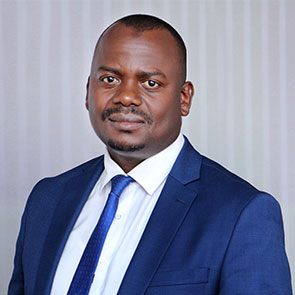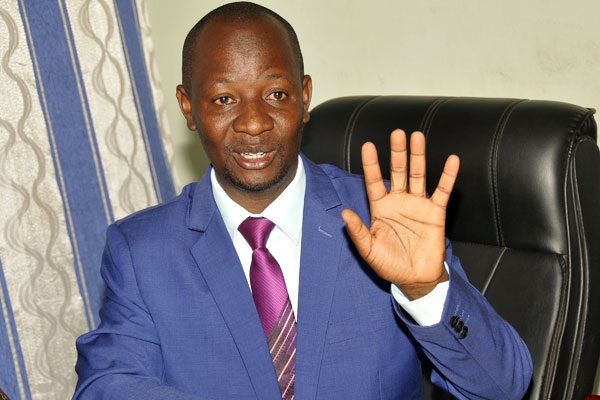By Denis Jjuuko
A lot of parents and guardians with children joining primary one, senior one and senior five are having difficulties in breathing. They are making frantic phonecalls to whoever can help fix their kids in certain schools. Parents are willing to pay anything including bribes to ensure their kids join certain schools. A lot of parents think that once their kids join a certain school, then life will be good.
That is how we have ended up with interviews for kids joining primary one. That is how schools ask 200 kids to sit for interviews when they have only five vacancies and charging a premium for it. It is daylight robbery. Gullible parents are happy for their kids to be number 300 on the waiting list when the school is admitting only 30 kids. The school then advises the parent to book the day they conceive the baby and ensure that Junior is in baby group, play group, ballet groups etc. That way, the kid won’t be number 300 on the waiting list. Priority is for those in the groups.
I have never understood why any school would want to interview a kid who is joining P1. They have seven years to prepare a kid for the national exams or to assess them. Take a child with special needs to most of these schools and you will realize how long it will take them to notice. It is mainly greed that leads to this. I highly doubt there is any real assessment being made. That is why they charge so much money for uniforms made out of polyester. If a parent tries to raise a finger, school administrators respond by ‘advising’ them to take their kid elsewhere. Of course they have a few parents coached to echo the school’s view.
A friend has kids of her relatives visiting for holidays who are starting P7 this year. They go to one of those so-called elite schools. They came with lots of what is being referred to as ‘holiday package’ and one of the questions was asking them to discuss a government policy that is similar to the national census. Government policy for a kid in primary? What experience do they have to be asked to do that? Even some government employees in this country sometimes struggle to understand government policy yet we expect our kids do so.
A lot of schools have only buildings to talk about. They think once they create a big room with second hand desktop computers, then they are good with technology. There are many teachers who don’t even know how to use a computer in these elite schools. How are they going to teach a kid stuff of the 21st century? You go to a school that charges millions and they still teach the same way it was done in the 1960s (apart from phonetics).
Schools now create artificial demand to ensure that they can charge parents a ransom. Some of these schools ask parents to contribute to swimming pool for decades while others where a building fee is charged, there isn’t any new building. Others ask for paint but you never see a school painted. And now there is a new craze — having a fancy main gate. They are charging money to build canopies at the main gate. I don’t know what value a canopy is to a child’s education.
The best way to determine how good a school is now seems to be the difficulty in having kids admitted into it. This is wrong for a country. The best schools should be accessible so people get a chance. Of course this happened because government neglected the education sector and left businessmen to be charge. Most people in Uganda who are 35 years and above most likely went to public schools. Public schools at primary level today are in intensive care (though I admire kids who go to Buganda Road or Kitante, they grow up street smart). Secondary schools reinvented themselves into the most exorbitant ones. They have deliberately remained small so that they can charge a premium for the same education as anybody else. I think only Makerere College has expanded by establishing a second campus in Kira. Others are still the way they were when Daudi Chwa was Kabaka of Buganda save for a new administration block that enables the head teacher to enjoy the powers that come with being the most looked for human being every January. And the billions collected every three months.
I don’t know for how long schools will take parents for granted though. I am told there is a decline in enrollments of students into A-level. Parents have started to realize that kids doing A-level and joining university is wastage of money. The students leave universities and walk streets in search of jobs for life, which isn’t the case with those who go to technical schools (including nursing ones). They have realized a better return on investment.
Privately owned universities are registering low intakes than ever before. This is because they too never invested in modern education systems. Most privately owned universities are struggling and many won’t exist 5-10 years from now unless they dramatically change the way they do business. Opening a branch in every little town won’t cut it.
So if there is an industry that needs disruption right now in Uganda, it is education. The current model of teaching kids to pass exams, zero uptake of technology even when it is cheaply available and over reliance on only storied buildings cannot work forever. If you are investing in schools and still offering the same stuff like everybody else, your days are numbered.
So I believe applying relevant technology and helping kids to solve problems of the 21st century, and teaching them lifelong skills will make a difference. Of course schools can claim to be following a national curriculum. They can also claim that if they don’t do what everyone is doing they won’t have kids enrolled. That may be true to a certain extent but for how long will the current model go unchallenged? I think like we are seeing with dwindling numbers for A-level and university enrollment, the next loser is going to be a school that doesn’t think how to change the current narrative.
The author is a media consultant and businessman. djjuuko@gmail.com
Do you have a story in your community or an opinion to share with us: Email us at Submit an Article






